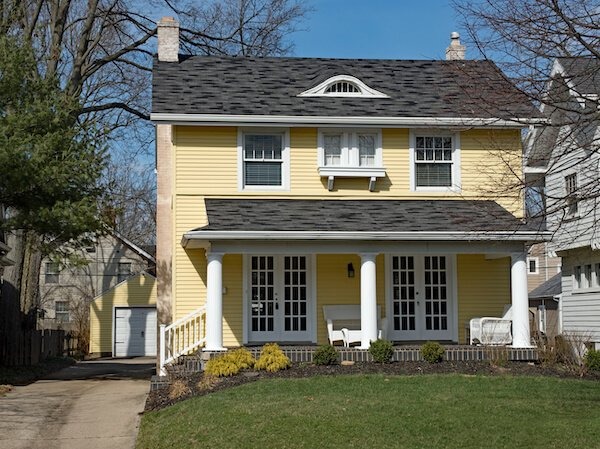How Referrals Work: Connecting With Local Palliative Services in QLD
A referral to palliative services is how you access specialist care when someone has a life-limiting illness. It’s really not as complicated as you may think. Your GP (General Practitioner) can refer you, hospital staff can arrange it, or in some cases, families can reach out directly to palliative care services.
Thankfully, support is available across Queensland, from Brisbane to regional areas. Services like PalAssist connect families with local palliative care options and walk them through the referral process every day.
If you’re curious to know more, this guide walks you through exactly how referrals work and what happens next, so you can connect with the right people every time.
Understanding Palliative Care Referrals
A referral to palliative services is simply the process that connects you with specialist support teams. It’s like the official pathway to access specialist palliative care services when someone has a life-limiting illness.
Here’s what a referral does: it gives palliative care teams the medical information they need to assess your situation and provide the right support. The referral includes details about symptoms, current treatment, and what kind of care would help most at home or in a facility.
While GPs, specialists, and hospital staff usually make the referrals, can make referrals, some Queensland services even accept referrals directly from families (and yes, the paperwork sounds scarier than it is).
The good news is that the Queensland Government funds these services. So, accessing palliative care through the public health system is generally free for patients with a Medicare card.
Different Ways to Get Referred
Unfortunately, most families don’t realise there are several pathways to access specialist palliative care services in Queensland. We’ll cover each one in the section below:
Getting a Referral to Palliative Services Through Your GP
Your GP is usually the first person to contact when you need palliative care. They know your medical history, understand your current symptoms, and can refer you to local services that match your needs.
The GP sends a referral with relevant health information to the palliative care team in your area. The team uses the data to understand what support would be more necessary, from pain management to spiritual care at home.
Hospital Referrals for Life-Limiting Illness
Did you know that if your family member is already in the hospital, the discharge planning team arranges referrals automatically. They coordinate with palliative care services before the patient goes home (because no one should leave the hospital without a clear plan).
However, hospital teams typically refer patients who require specialist assessment for symptom management or need additional support transitioning to care at home or in aged care facilities.
Direct Access to Specialist Palliative Care Services
Some palliative care services in Queensland accept direct contact from families or carers without requiring a GP referral first. While this option isn’t available everywhere, it does exist in certain regions across the state.
Check with services in your local area to see if they accept self-referrals, or contact PalAssist for advice on which services near you allow direct access.
Finding Support in Your Local Area
Queensland’s palliative care network reaches every region, from Brisbane to remote communities. Finding the right service takes some effort, and sometimes it depends on the area.
The Queensland Government funds palliative care services across metro, regional, and rural areas. These services work differently depending on your location. Metro areas like Brisbane, the Gold Coast, and Logan have multiple specialist palliative care teams that provide hospice facilities and home-based support options.
Alternatively, regional centres provide hospital palliative care units and community teams that visit patients. Rural Queensland uses more telehealth consultations, though local GPs still deliver primary care with specialist advice by phone.
But what happens after your referral goes through?
What Happens After You’re Referred
The process after getting referred is much easier than finding your reference. Let’s break it down.
- Getting Contacted: A care coordinator from the palliative care service contacts you within five business days to arrange an assessment. But based on our experience, most care coordinators reach out within two business days. They’ll ask about your current situation and schedule a time to meet.
- Completing Assessment: The initial assessment covers symptoms, pain levels, and what help would make the biggest difference right now. A nurse or doctor visits your home or meets you at a clinic or hospital. They discuss treatment goals, symptom management options, and what support services you might need.
- Building a Care Plan: Your palliative care team then coordinates with your GP and other health professionals to create a care plan. This team might include nurses, social workers, and specialists, depending on what the patient requires. They arrange equipment for the home if needed and connect families with additional support services.
You’ll notice that regular reviews will happen as your needs change. Aside from that, the team will adjust treatment and support based on how symptoms respond over time.
Who Can Access Palliative Care in Queensland
Palliative care isn’t just for people with cancer. Any Queensland resident with a life-limiting illness can access specialist palliative care services, regardless of age or diagnosis.
Eligibility includes patients with progressive conditions like heart disease, lung disease, kidney failure, dementia, or motor neuron disease. Children and young people can also receive palliative care when they have life-limiting conditions.
Here’s the main criterion: the patient has a serious illness where symptoms require specialist assessment and management.
However, most services don’t set strict time limits. You don’t need to be in the final weeks of life to qualify for palliative care support. Many patients receive care for months or even years while managing their condition at home or in aged care facilities.
As for the cost, private palliative care options exist, though the costs vary. This is where your GP or hospital team can discuss which services meet your eligibility criteria and how to start the referral process.
Help Is Just a Phone Call Away
Finding palliative care in Queensland is quite simple if you just know the steps. Your GP can arrange it, hospital teams handle referrals automatically, or you can contact specialist palliative care services directly in some regions.
These referrals connect patients with palliative care teams who provide symptom management, emotional support, and specialist assessment. So, don’t worry, help is there when you need it!
Disclaimer
The information provided in this guide is for general educational purposes only and should not be taken as medical advice. Palliative care services and referral pathways can vary depending on location, eligibility, and individual health circumstances. Families and patients should always speak with a qualified healthcare professional, such as a GP or hospital team, for personalised guidance and to confirm available services in their area. While every effort has been made to ensure accuracy at the time of writing, changes may occur in Queensland’s health system and policies. Any decisions regarding treatment or care should be made in consultation with a licensed healthcare provider.






